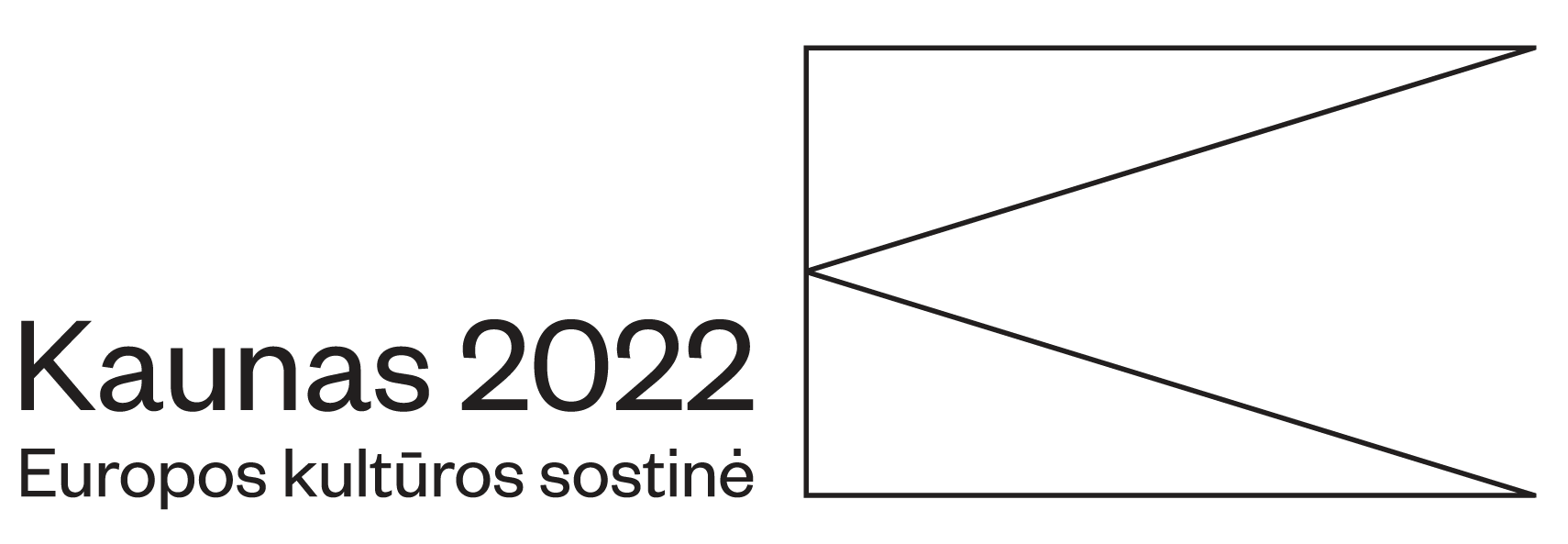More empathy, listening to and hearing out, more work and effort not for completing project reports, but rather initiating high-quality experiences. More of the human factor. These were the main topics of the second European Capital of Culture Forum that took place on May 23–24 at the Žalgiris Arena in Kaunas, the European Capital of Culture 2022 in Lithuania.
Several dozens of presenters, workshop coordinators and discussants from Lithuania and abroad, as well as several hundreds of participants and sixteen intensive hours (with a loud intermission of the annual Courtyard Feast on the Thursday evening), not only listening to but hearing as well. Not only the practical advice, but also personal stories about what each and everyone one of us can do for culture to become like air to breathe in the everyday life and not only for those who create, sell and use culture for a long time, but also for those who think they are so very far away from it all.
The elitist approach towards what to offer to the audience that presumably does not understand and know what it needs is still a thing, but it’s just one of the stages in the framework of cultural development. In one of the first presentations of the Forum, Mr. Pier Luigi Sacco, Professor at IULM Milan University, Senior Researcher at Harvard University, stated that the second stage, or Culture 2.0, aims at reaching very large audiences, while Culture 3.0 is the inclusion of the audience into the creative process. This concept precisely is adopted by the teams of all recent and successful, current and future European Capitals of Culture (ECoC). Oh, and there are hundreds of examples for this! Like poetry that travels along the potato road from the Netherlands to Malta. Yes, you have heard it right: the fresh harvest of potatoes in the Netherlands has been transported for raising the crop in Malta and back to the Dutch for a hundred years. This literary Leeuwarden 2018 project, when the Dutch verses were sent to the Maltese, and the latter sent theirs back to the continent, later developed into the potato theatre and sculptures as well. The industrial Greek city of Eleusis has based its programme for ECoC in 2021 on addressing the local issues and social problems. The events based solely on the high culture would not be appreciated there, while an artist who suggested making them a thousand construction helmets, a local terracotta army, was welcomed very warmly. Matera that shares this year’s ECoC title with Plovdiv (Bulgaria), has decided to uproot the problem shared with other cities of similar size, related to people using art and culture created elsewhere. This is how ordinary people become convinced that they are extraordinary after all.
After the morning presentation sessions on both days, guests could choose whether to immerse themselves into the eternal discussion about the relationship between business and culture, participate in creative intuition workshops, rediscover objects like šakotis or get into the labyrinths of the mysterious cultural diplomacy.
The session about business-culture cooperation was full of spot-on ideas that gained well-deserved ovations. For example, a thought by Mr. Paul Bourne, a theatre director working with companies like Nike and a fellow at Cambridge University. Mr. Bourne, also a business consultant, claims that “Innovation is creativity with an invoice attached”.
Most wrote down in their notebooks that business-culture collaboration projects benefit both parties involved: strategic approach adopted by artists and encouragement for business to employ creativity and imagination. There is no point in arguing about the current situation, in which the greater part of the cultural society looks at business as the providers of support, while there are so many other forms to cooperate in a mutual partnership, charity and sponsorships aside. Mr. Paulius Motiejūnas, CEO at BC Žalgiris, has pointedly stated that culture and sports usually offer mostly positive emotions and most brands want to be associated with them.
The session of cultural diplomacy provided an opportunity to hear some stories about cultural diplomacy used as the method of soft power and its long-term effect, as applied by the greatest cultural players of the world. Moreover, one could find out the unheard-of details from the French and Polish institutes working in Lithuania for many years, also about books manually transported by people to the new Latvian national library, which was also a humanistic and a very effective highlight promotion-wise of the opening programme of Riga the European Capital of Culture.
The Kaunasians should be flattered by a comment from the guest from Riga as well. Ms. Aiva Rozenberga, who is an expert on strategic communications and cultural affairs, member of the Baltic Culture Fund and former Director of the Latvian Institute, spoke about real stories based on the human factor, and how it can be turned into the tool of cultural diplomacy and for shaping the city’s image. In this context, she mentioned a trend started by two young Kaunasians who purchased and brought back to life apartments from the Interwar period, just like the one in Gedimino g. 48, which has served as a location for various photo sessions and cultural events.
Later discussion turned towards a question raised by Ms. Aušrinė Žilinskienė, Director of the Lithuanian Culture Institute: which art and which artists can represent Lithuania and whether their brave ideas highly valued in the art’s world are good to promote the country’s image? Participants with experience in the diplomatic sector have noticed that it is probably impossible to come up with one answer, but… it is not obligatory to invite a country’s ambassador to the opening of your event abroad.
The attention by Forum’s participants was captured by two representatives who specialise in audience development from Impact Foundation, a Polish institution. While the president of the company Ms. Agata Etmanowicz has emphasised the importance of emotional contact, feeling the other person’s situation, her colleague Agnieszka Wlazeł shared the methods of art and technology use for audience engagement. According to her, innovations provide the visitors of cultural institutions or events a chance to become directors themselves. They make the decisions, change the scripts and thus immerse themselves into the content suggested. Such participatory practice can answer a frequently heard rhetorical question: “What should be done, if people do not come to us?” The answer is thus: go to people. Culture can and should move to where its audience is: to their smartphones, computers, bookstores or parks.
It is difficult to tell in one sentence what audience gathered in the arena of Žalgiris Amphitheatre. Open and free for everyone, the European Capital of Culture Forum attracted representatives from the cultural institutions from state and private companies in Lithuania and Europe, including all positions and creators of the underground and the counterculture. Maybe more representatives of municipalities, politics and businessmen could have scheduled their time to spend at least a day in the event, but one can wish and expect that participants will share their knowledge with those who could not visit it.
Ms. Ana Čižauskienė, the organiser of the European Capital of Culture Forum is convinced that this event that took place for the second time has outgrown the city limits: “The Forum becomes an important arena for the talks on innovation, cultural accessibility, its participation on the European level and the role of culture for urban development in general.

